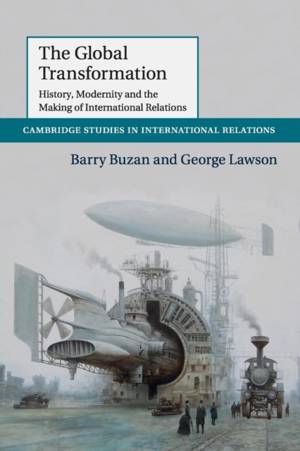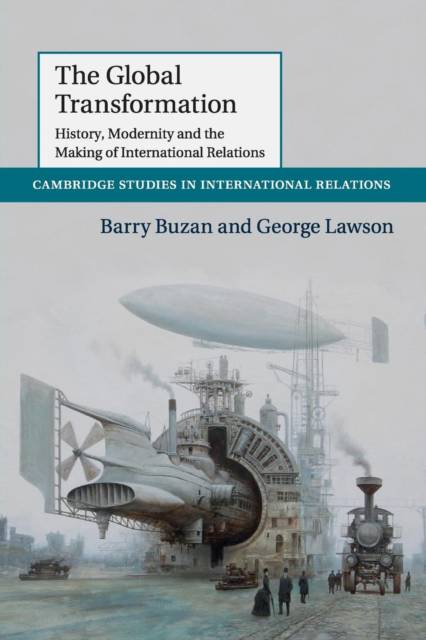
Je cadeautjes zeker op tijd in huis hebben voor de feestdagen? Kom langs in onze winkels en vind het perfecte geschenk!
- Afhalen na 1 uur in een winkel met voorraad
- Gratis thuislevering in België vanaf € 30
- Ruim aanbod met 7 miljoen producten
Je cadeautjes zeker op tijd in huis hebben voor de feestdagen? Kom langs in onze winkels en vind het perfecte geschenk!
- Afhalen na 1 uur in een winkel met voorraad
- Gratis thuislevering in België vanaf € 30
- Ruim aanbod met 7 miljoen producten
Zoeken
The Global Transformation
History, Modernity and the Making of International Relations
Barry Buzan, George Lawson
€ 53,45
+ 106 punten
Uitvoering
Omschrijving
The 'long nineteenth century' (1776-1914) was a period of political, economic, military and cultural revolutions that re-forged both domestic and international societies. Neither existing international histories nor international relations texts sufficiently register the scale and impact of this 'global transformation', yet it is the consequences of these multiple revolutions that provide the material and ideational foundations of modern international relations. Global modernity reconstituted the mode of power that underpinned international order and opened a power gap between those who harnessed the revolutions of modernity and those who were denied access to them. This gap dominated international relations for two centuries and is only now being closed. By taking the global transformation as the starting point for international relations, this book repositions the roots of the discipline and establishes a new way of both understanding and teaching the relationship between world history and international relations.
Specificaties
Betrokkenen
- Auteur(s):
- Uitgeverij:
Inhoud
- Aantal bladzijden:
- 421
- Taal:
- Engels
- Reeks:
- Reeksnummer:
- nr. 135
Eigenschappen
- Productcode (EAN):
- 9781107630802
- Verschijningsdatum:
- 5/02/2015
- Uitvoering:
- Paperback
- Formaat:
- Trade paperback (VS)
- Afmetingen:
- 152 mm x 224 mm
- Gewicht:
- 589 g

Alleen bij Standaard Boekhandel
+ 106 punten op je klantenkaart van Standaard Boekhandel
Beoordelingen
We publiceren alleen reviews die voldoen aan de voorwaarden voor reviews. Bekijk onze voorwaarden voor reviews.









